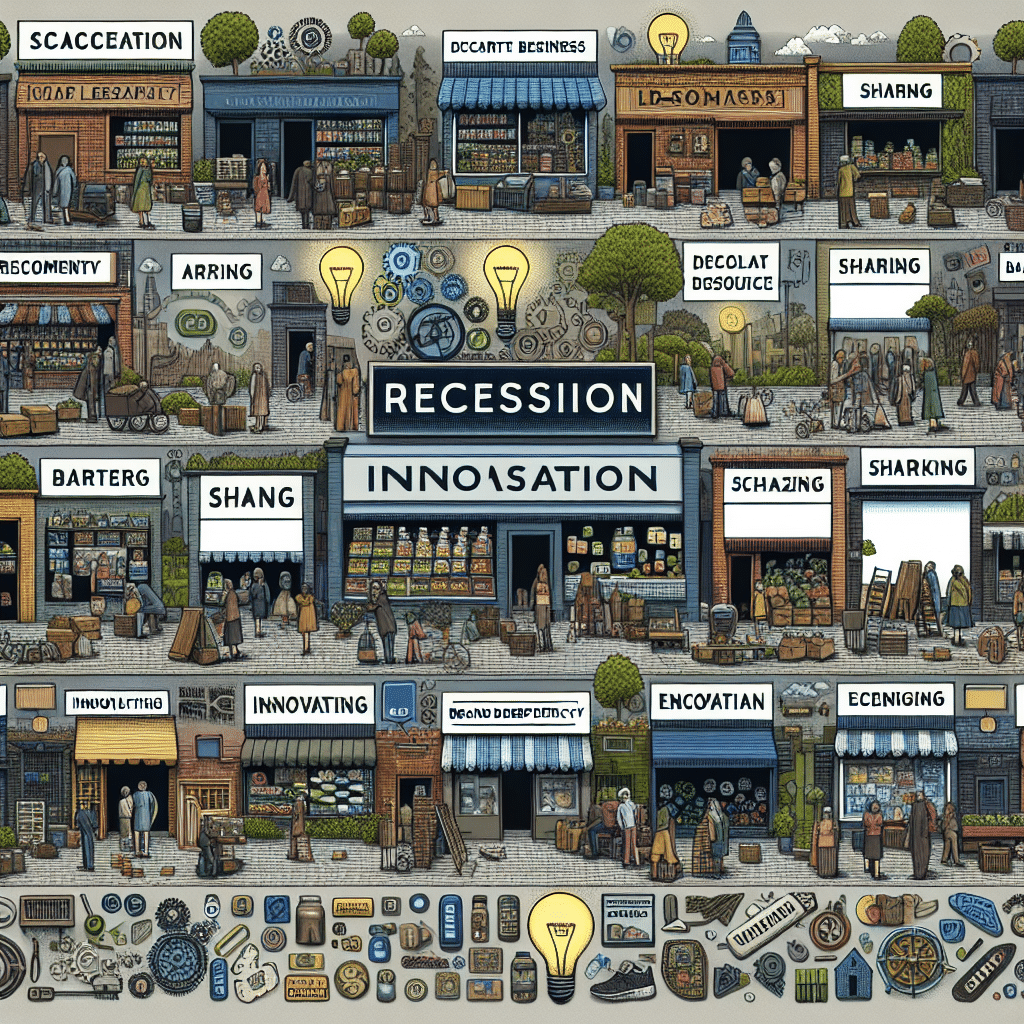Recession-era Innovations: Adapting to Consumer Behavior Changes
-
Table of Contents
- Recession-Era Innovations: Adapting to Consumer Behavior Changes
- Understanding Consumer Behavior in a Recession
- Innovative Business Strategies in Response to Recession
- Product Innovation and Diversification
- Cost-Effective Solutions
- Enhanced Digital Presence
- Customer Loyalty and Retention
- Case Studies: Recession-era Success Stories
- Netflix: Pioneering Streaming Services
- Dollar General: Expanding Discount Retail
- Amazon: Doubling Down on Convenience
- Adapting Marketing Strategies to Recession Behaviors
- Statistics: The Impact of Innovation on Consumer Behavior
- Conclusion: Key Takeaways for Recession-Proofing Your Business
- ETChem: Meeting Your Protein Needs with High-Quality Collagen Products
Recession-Era Innovations: Adapting to Consumer Behavior Changes
In times of economic downturn, businesses face the daunting challenge of staying afloat amidst a sea of changing consumer behaviors. The recession brings about a shift in spending patterns, priorities, and preferences, compelling companies to innovate or risk obsolescence. This article delves into the transformative innovations that have emerged during recessionary periods, highlighting how businesses adapt to meet the evolving needs of consumers.
Understanding Consumer Behavior in a Recession
During a recession, consumers typically tighten their belts, prioritizing essential over discretionary spending. This shift in behavior is driven by uncertainty about the future, job security, and a desire to increase savings. As a result, businesses must reassess their strategies to align with these new consumer priorities.
- Increased demand for value and affordability
- Preference for multi-functional and durable products
- Growth in DIY and home-based activities
- Rise in online shopping and digital services
Innovative Business Strategies in Response to Recession
Companies that successfully navigate recessions often do so by embracing innovation. This can take many forms, from product development to marketing strategies, all aimed at addressing the changing needs of consumers.
Product Innovation and Diversification
Businesses may introduce new products or modify existing ones to offer greater value. For example, during the 2008 recession, Hyundai launched its “Assurance Program,” allowing customers to return their cars if they lost their jobs. This innovative approach addressed consumer fears and boosted Hyundai’s sales and market share.
Cost-Effective Solutions
Companies often find ways to reduce costs without compromising quality. For instance, some businesses may switch to more affordable materials or streamline their product lines to focus on best-sellers that appeal to budget-conscious consumers.
Enhanced Digital Presence
With more consumers shopping online, businesses have invested in their digital platforms. During the COVID-19 pandemic, many companies accelerated their e-commerce capabilities, offering virtual consultations, online classes, and contactless delivery options.
Customer Loyalty and Retention
Building customer loyalty becomes crucial during a recession. Businesses may introduce loyalty programs, personalized services, or flexible payment options to retain customers and encourage repeat business.
Case Studies: Recession-era Success Stories
Several companies have not only survived but thrived during economic downturns by adapting to consumer behavior changes. Here are a few notable examples:
Netflix: Pioneering Streaming Services
During the 2008 recession, Netflix shifted its focus from DVD rentals to streaming services. This move capitalized on the growing demand for affordable in-home entertainment, leading to a significant increase in subscribers.
Dollar General: Expanding Discount Retail
Discount retailer Dollar General experienced growth during the recession by catering to cost-conscious consumers. The company expanded its store count and offered a range of low-priced necessities, becoming a go-to destination for budget shoppers.
Amazon: Doubling Down on Convenience
Amazon’s commitment to convenience and broad product selection helped it gain market share during economic downturns. The company’s Prime membership, offering free shipping and other benefits, attracted consumers looking for value and ease of shopping.
Adapting Marketing Strategies to Recession Behaviors
Marketing during a recession requires a nuanced approach that resonates with the emotional and financial state of consumers. Businesses may shift their messaging to emphasize value, reliability, and empathy.
- Focus on value-driven messaging
- Highlight product durability and versatility
- Engage with customers through social media and community initiatives
- Offer promotions and flexible payment options
Statistics: The Impact of Innovation on Consumer Behavior
Research has shown that companies that invest in innovation during recessions can achieve long-term success. For example, a study by Harvard Business Review found that 14% of companies outperformed their competitors by at least 10% in sales and profits after a recession, largely due to innovative strategies.
Conclusion: Key Takeaways for Recession-Proofing Your Business
To adapt to consumer behavior changes during a recession, businesses should focus on offering value, embracing digital transformation, and maintaining customer loyalty. By innovating in product offerings, marketing strategies, and operational efficiencies, companies can not only survive but also set the stage for future growth.
ETChem: Meeting Your Protein Needs with High-Quality Collagen Products
In the context of recession-era innovations and changing consumer behaviors, ETChem stands out as a company that understands the importance of adapting to market needs. Their high-quality collagen products cater to the growing demand for health and wellness supplements, which remains strong even during economic downturns.
ETChem’s range of collagen products, including marine, fish, bovine, and chicken collagen, offers versatility and quality to manufacturers and distributors in various industries. By providing tailor-made solutions, ETChem ensures that businesses can meet the evolving preferences of health-conscious consumers looking for premium protein supplements.
Whether you’re in the nutraceutical, pharmaceutical, or food and beverage industry, ETChem’s commitment to excellence and customer satisfaction makes them an ideal partner during challenging economic times. Their expertise in delivering top-tier collagen products can help your business stay competitive and responsive to consumer needs.
About ETChem:
ETChem, a reputable Chinese Collagen factory manufacturer and supplier, is renowned for producing, stocking, exporting, and delivering the highest quality collagens. They include marine collagen, fish collagen, bovine collagen, chicken collagen, type I collagen, type II collagen and type III collagen etc. Their offerings, characterized by a neutral taste, instant solubility attributes, cater to a diverse range of industries. They serve nutraceutical, pharmaceutical, cosmeceutical, veterinary, as well as food and beverage finished product distributors, traders, and manufacturers across Europe, USA, Canada, Australia, Thailand, Japan, Korea, Brazil, and Chile, among others.
ETChem specialization includes exporting and delivering tailor-made collagen powder and finished collagen nutritional supplements. Their extensive product range covers sectors like Food and Beverage, Sports Nutrition, Weight Management, Dietary Supplements, Health and Wellness Products, ensuring comprehensive solutions to meet all your protein needs.
As a trusted company by leading global food and beverage brands and Fortune 500 companies, ETChem reinforces China’s reputation in the global arena. For more information or to sample their products, please contact them and email karen(at)et-chem.com today.





